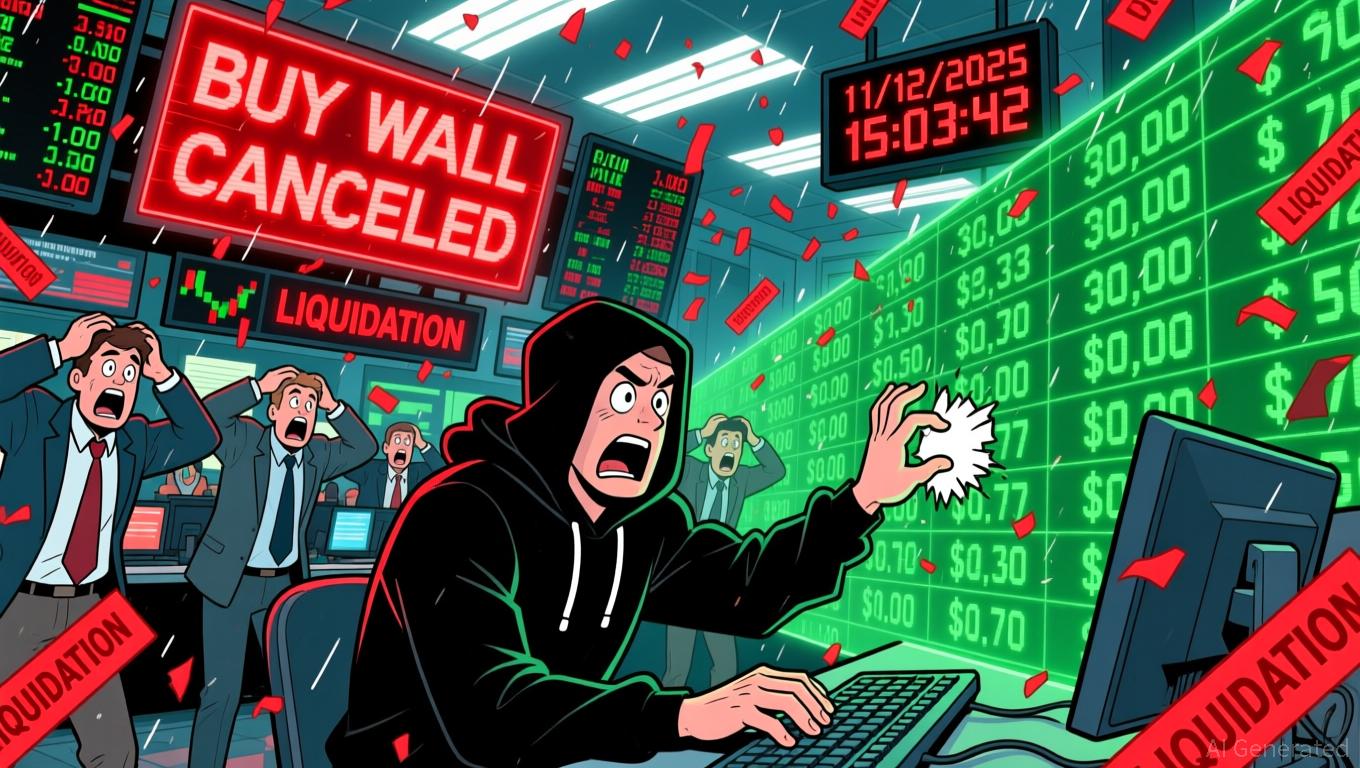Hyperliquid News Today: DeFi’s High-Leverage Trading Environments Increase Systemic Spoofing Threats
- Hyperliquid, a fast-growing decentralized perpetuals exchange, suffered a $4.9M bad debt loss from a third 2025 market manipulation attack targeting Solana-based memecoin POPCAT. - Attackers used $3M in USDC to create artificial demand via 19 wallets, triggering a 30% price drop and cascading liquidations that shifted losses to liquidity providers. - The incident highlights systemic risks in high-leverage, illiquid crypto markets, where spoofing attacks exploit thin order books and decentralized governan
Hyperliquid, a rapidly expanding decentralized perpetuals exchange, has experienced its third significant market manipulation incident in 2025, this time centered around the Solana-based
The exploit began when an unidentified individual withdrew $3 million in

This is the third time this year Hyperliquid has suffered such an attack, following similar incidents in March and July. The recurring nature of these exploits points to a fundamental risk in decentralized perpetuals trading, where limited liquidity and high leverage make the platforms vulnerable to spoofing and timing-based strategies.
The exchange’s rapid expansion—now reporting daily trading volumes exceeding $10 billion—and its dependence on community-backed liquidation pools have made it an attractive target. Experts point out that the attacker took advantage of the platform’s 50x leverage on select tokens, using 5x leverage on POPCAT to intensify the price crash.
Hyperliquid’s ongoing issues mirror larger problems within the crypto derivatives sector. The platform’s liquidity vault, intended to cover losses from liquidations, is now absorbing the impact of repeated attacks. Although the company has yet to announce updates to its risk controls, these events have led to renewed calls for tighter regulation of high-leverage trading on decentralized platforms.
The POPCAT incident also illustrates the increasing complexity of market manipulation in crypto. Unlike traditional finance, where regulations can discourage such actions, decentralized exchanges often lack the mechanisms to identify or stop spoofing as it happens.
As the digital asset market develops, the recurrence of these attacks may prompt decentralized exchanges to rethink their risk management and capital strategies. For now, Hyperliquid’s repeated breaches serve as a warning to both investors and developers in the space.
Disclaimer: The content of this article solely reflects the author's opinion and does not represent the platform in any capacity. This article is not intended to serve as a reference for making investment decisions.
You may also like
WhatsApp Weaponized in Brazil as New Malware Campaign Targets Crypto Users

Base Core Member Jesse Pollak Announces Upcoming $JESSE Token Launch, Warns of Fake Information Risks

Core Foundation Wins Cayman Court Injunction Against Maple Finance

Singapore Crypto Investors Shift From Low Fees to Trust as Market Matures
